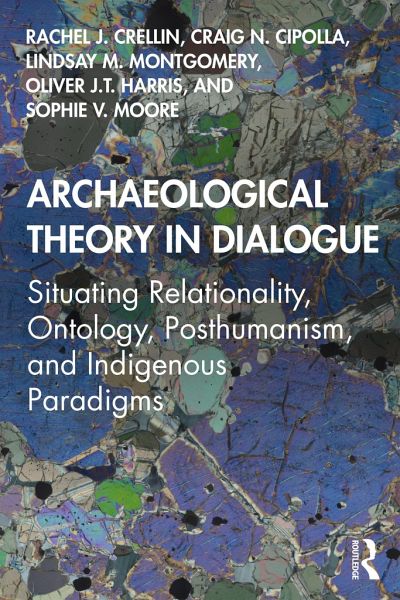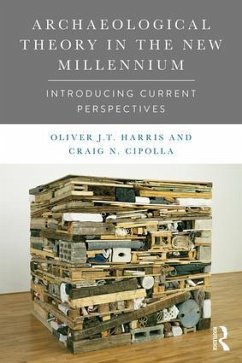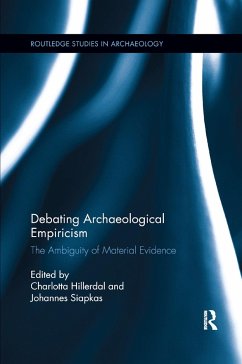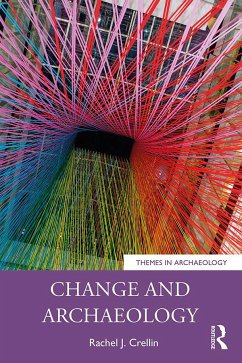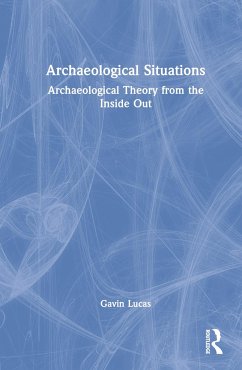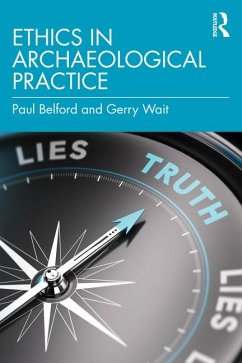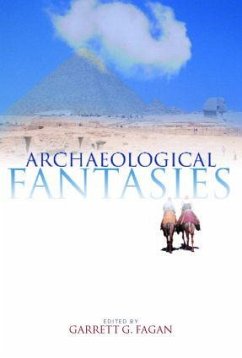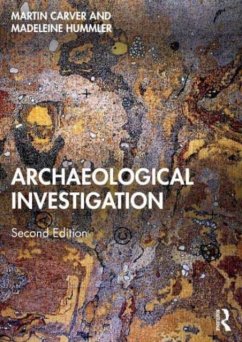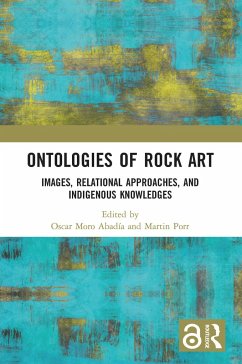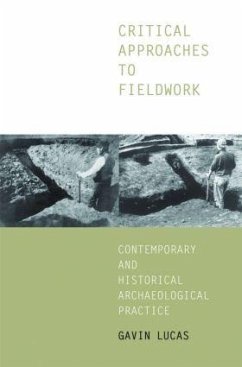Rachel J. Crellin (UK University of Leicester)Craig N. CipollaLindsay M. Montgomery
Broschiertes Buch
Archaeological Theory in Dialogue
Situating Relationality, Ontology, Posthumanism, and Indigenous Paradigms
Versandkostenfrei!
Versandfertig in 2-4 Wochen
Weitere Ausgaben:

PAYBACK Punkte
29 °P sammeln!




Archaeological Theory in Dialogue presents an innovative conversation between five scholars from different backgrounds on a range of central issues facing archaeology today.
Rachel J. Crellin is Lecturer in Archaeology at the University of Leicester. Her research interests center on archaeological theory, especially new materialist, feminist, and posthumanist approaches. She is also a specialist in the Neolithic and Bronze Age of Britain, Ireland, and the Isle of Man, and a metalwork wear-analyst. She is the author of Change and Archaeology (Routledge). Craig N. Cipolla is Curator of North American Archaeology at the Royal Ontario Museum and Associate Professor of Anthropology at the University of Toronto. His research interests include archaeological theory, colonial North America, and collaborative Indigenous archaeologies. His publications include Becoming Brothertown and Archaeological Theory in the New Millennium (co-authored with Oliver J.T. Harris, Routledge). Lindsay M. Montgomery is Assistant Professor of Anthropology at the University of Arizona. Her research focuses on Indigenous history in the North American West, with particular interest in social justice, interethnic interaction, settler colonialism, and cultural resiliency among Native peoples. She is co-author of Objects of Survivance and is currently finishing a book entitled A History of Mobility (Routledge). Oliver J.T. Harris is Associate Professor of Archaeology at the University of Leicester. He is co-author of The Body in History and Archaeological Theory in the New Millennium (Routledge), the latter with Craig N. Cipolla. He researches new materialist, posthumanist, and Deleuzian approaches to the past. He is currently finishing a book entitled Assembling Past Worlds (Routledge). Sophie V. Moore is Lecturer in Medieval Archaeology at Newcastle University. Her research focuses on the experienced past, using phenomenological approaches to material culture to investigate lived moments in the Byzantine world. She is a member of the Sagalassos Fieldwork Project in Turkey, where she uses courseware ceramics to investigate the "dark age" transformation of urban space between the sixth and thirteenth centuries CE.
Produktdetails
- Verlag: Taylor & Francis Ltd
- Seitenzahl: 236
- Erscheinungstermin: 9. November 2020
- Englisch
- Abmessung: 156mm x 235mm x 18mm
- Gewicht: 440g
- ISBN-13: 9780367135478
- ISBN-10: 0367135477
- Artikelnr.: 59986187
Herstellerkennzeichnung
Libri GmbH
Europaallee 1
36244 Bad Hersfeld
gpsr@libri.de
Für dieses Produkt wurde noch keine Bewertung abgegeben. Wir würden uns sehr freuen, wenn du die erste Bewertung schreibst!
Eine Bewertung schreiben
Eine Bewertung schreiben
Andere Kunden interessierten sich für



